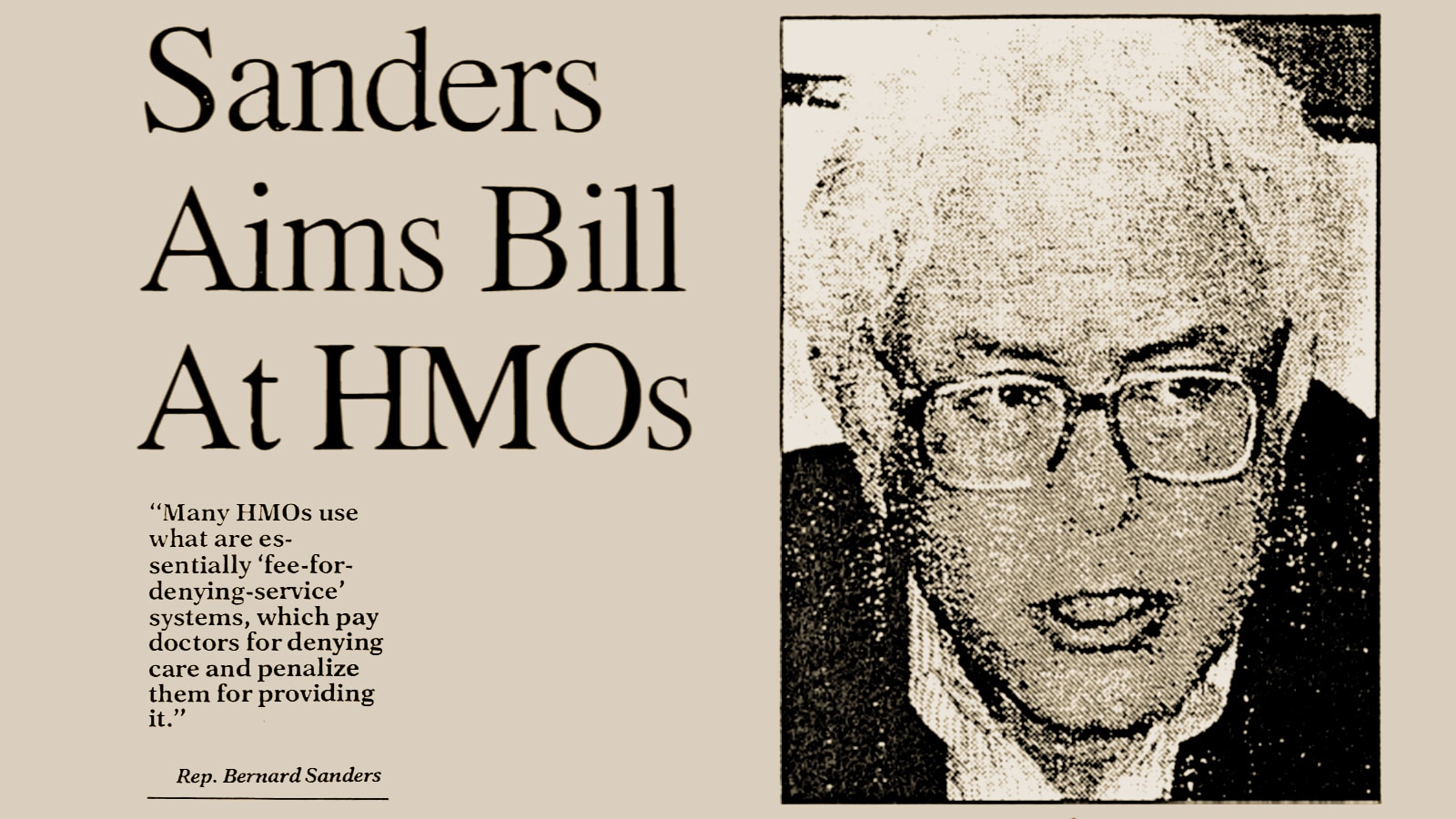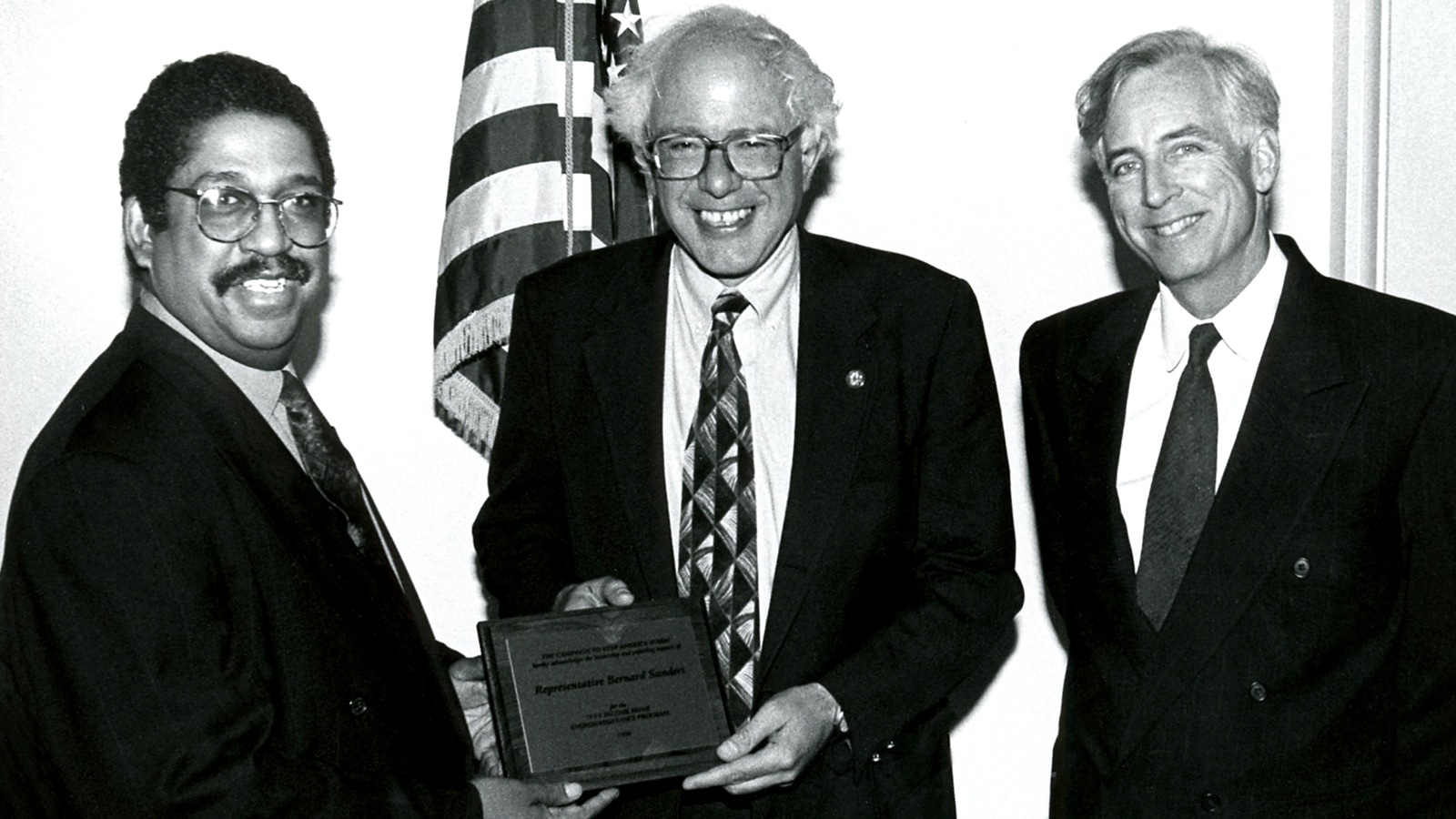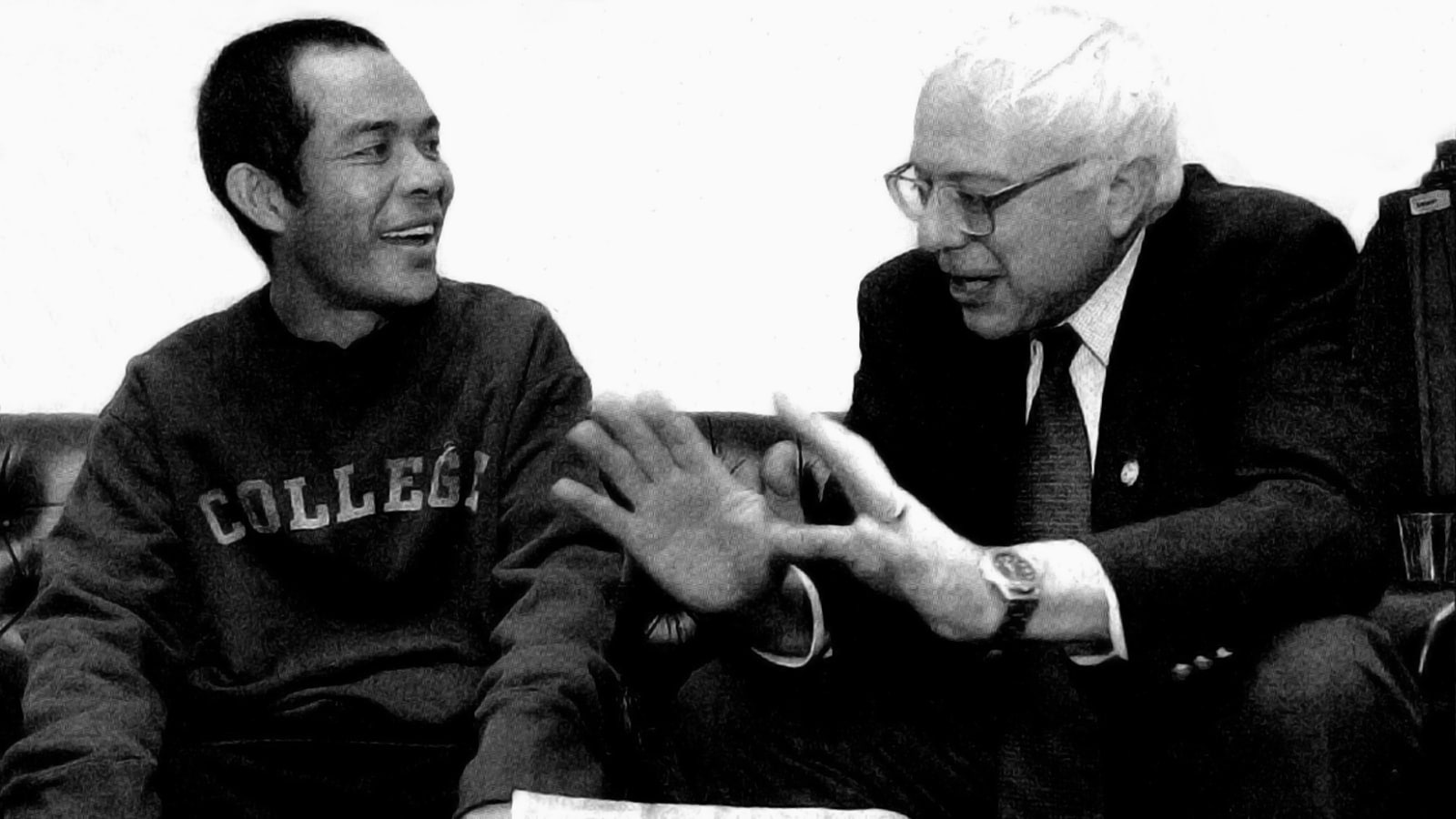In 1996, Rep. Bernie Sanders introduced legislation to prevent disturbing trends in managed care that threatened the doctor-patient relationship. The “Hippocratic Oath & Patient Protection Act” would bar so-called “gag rules” that prohibit doctors from giving patients certain information and require public disclosure of specific information that would help patients assess their health care company.[1]
“As part of the drive to control rising medical costs, many doctors and patients have joined HMOs (health maintenance organizations) or so-called managed care networks. Instead of paying doctors for each service provided, these HMOs pay doctors an annual fee for each patient. However, some HMOs were now offering doctors incentives to hold back on services.”[1]
“One of the biggest problems with the new managed care networks (HMOs) – which tightly control patients’ access to their groups of doctors, nurses, hospitals and other health care providers – is secrecy,” said Sanders in a February 1996 press conference at Vermont’s state capital in Montpelier.[2]
“Many HMOs use what are essentially ‘fee-for-denying-service’ systems, which pay doctors for denying care and penalize them for providing it. This places doctors in very difficult situations, as they are asked to base their decisions on criteria that are contrary to what they were taught and sworn to uphold.”[3]
Sanders said he is also concerned about the secrecy of many HMO policies. “You would have to be insane to sign on with an HMO whom you know will pay your doctor not to treat you. So, some insurance companies are taking steps to make sure you don’t know what they are doing. They keep their incentive plans secret from their customers, and in many cases, keep both patients and doctors in the dark about the formulas used to approve or deny coverage,” he said.[3]
Jan Trepanier, Executive Director of the Vermont Psychological Association, said the 300- member organization has been tracking trends in managed care since 1991. “One shocking issue is the so-called gag rules provided in contracts. One contract went so far as to say providers could never say disparaging remarks about the HMO even after the contract had been terminated. VPA strongly opposes any gag rules in managed care contracts. It is an unconscionable issue and should not be allowed.”[3]
Judith Mann, a psychologist with Family Therapy Associates in Essex Junction, Vermont said a managed care company denied hospital care to two of her teenage patients at serious risk of suicide, with no explanation to the psychologists. “This seemingly arbitrary denial of benefits interfered with our suicide prevention strategies, eventually proving disastrous. In both these cases, within one week after denying care, these girls had a serious suicide attempt,” she said.[3]
Mann noted that the HMO dropped her practice within 24 hours of reporting the incident to the Vermont Department of Banking and Insurance.[3]
In July 1996, a bipartisan group of House members joined Sanders in demanding that the federal government not tolerate “gag rules” imposed on doctors by managed care companies. Rep. Wayne Gilchrest (R-MD) joined Sanders in offering an amendment prohibiting the federal government from funding managed care plans under Medicare and Medicaid if the HMOs impose gag rules.[4]
Sanders said, “Health maintenance organizations are telling providers what they can and cannot say to their patients and others regarding care and treatment simply because they do not want to pony up for the cost of those treatments. This dangerous practice presents serious conflicts between providers’ contractual obligations to the HMO and their ethical obligations to the patient. The federal government clearly should not be putting their stamp of approval on this unhealthy practice.”[4]
Sanders continued, “This practice of saving dollars vs. saving lives cannot go unchecked. I am very disturbed that many HMOs have continually focused on their bottom lines instead of their patient’s best interests. If HMOs are so concerned with controlling costs, perhaps they should take a look at trimming some of their CEOs’ exorbitant salaries and bonuses instead of patient care.”
Sanders noted that in April of 1996, the acquisition of U.S. Healthcare by Aetna yielded U.S. Healthcare’s CEO, Leonard Abramson, a personal profit of approximately $1 billion, including a nearly $500 million cash payment plus stock in the new company. Sanders concluded, “I am concerned that the large profits of U.S. Healthcare and other HMOs increasingly stem from practices contrary to medical ethics and sound patient care. My amendment moves us in the right direction by telling HMOs who do business with the federal government that gag rules will not be tolerated.”
 Back to Timeline
Back to Timeline


